Covid-19: First anniversary of furlough in Northern Ireland
- Published
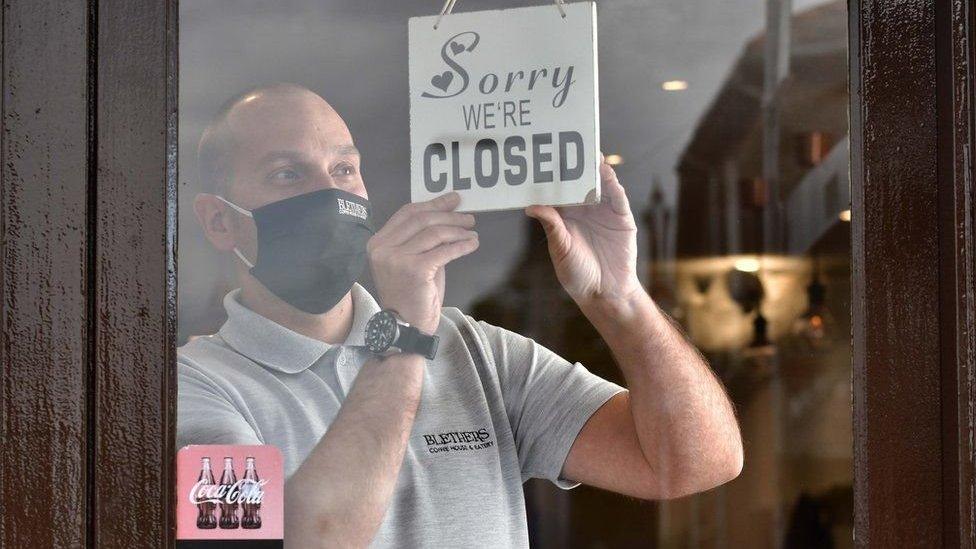
This day last year we heard a new word that quickly became part of our vocabulary - furlough.
The announcement came on a Friday evening, at the end of a difficult and anxious week.
NI businesses were facing closure and there were warnings of thousands of job losses, particularly in hospitality.
Business organisations had been crying out for government support - one source told me they hoped for a scheme that would pay 40-50% of wages.
What the chancellor announced went even further and exceeded their expectations.
In a totally unprecedented move, Chancellor Rishi Sunak announced the Job Retention Scheme - now often referred to as furlough.
It would cover 80% of workers' wages up to a maximum of £2,500 a month.
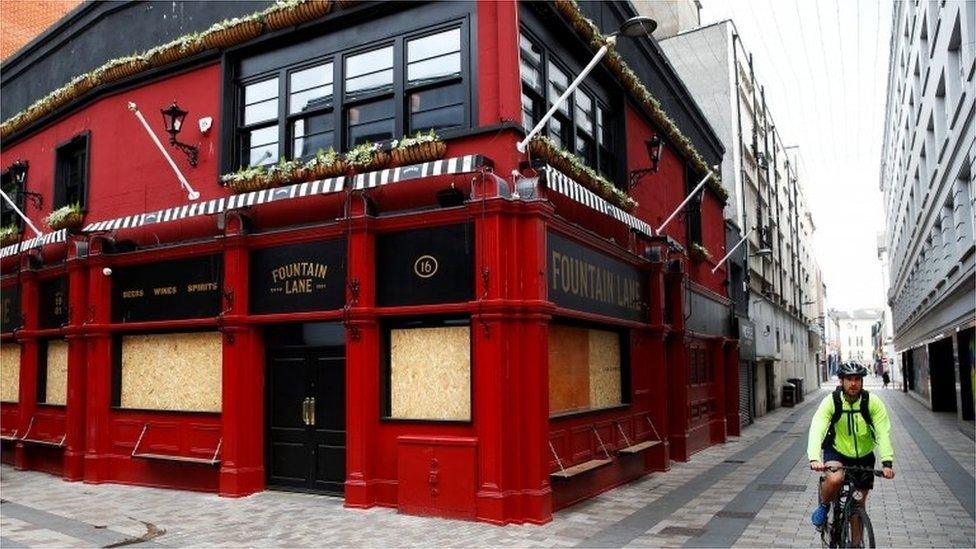
The furlough scheme was announced by Chancellor Rishi Sunak at the start of the pandemic
Little did the chancellor know that the government would end up paying workers' wages for more than a year - a shock move by a Conservative government in response to a global crisis.
This would bring some comfort to those who had lost their livelihoods.
Over next 12 months it would be a vital lifeline for hundreds of thousands of people here.
Safety net
At its peak, it supported almost a quarter of a million workers in Northern Ireland.
Since March 2020, the scheme has been extended many times - including just hours before it was due to come to an end in October.
At that time, the government was criticised for not extending it sooner - particularly as regions including Northern Ireland were already facing tighter restrictions, but the extension appeared to only come in response to England facing tighter restrictions.
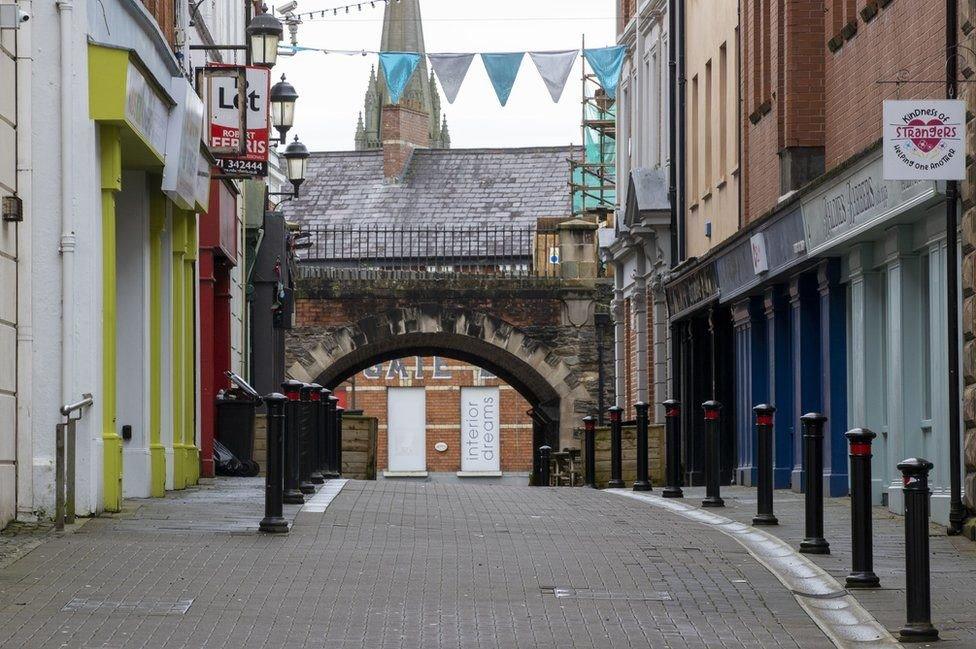
Many shops and businesses across Northern Ireland have placed their staff on furlough
Furlough was a safety net that cushioned the impact of lockdown, but no government policy could save every job.
Regardless of this intervention, employers in Northern Ireland proposed making 10,000 people redundant in 2020.
While the scheme was designed to protect jobs, not everyone will have a job to return to.
It is also not free for employers.
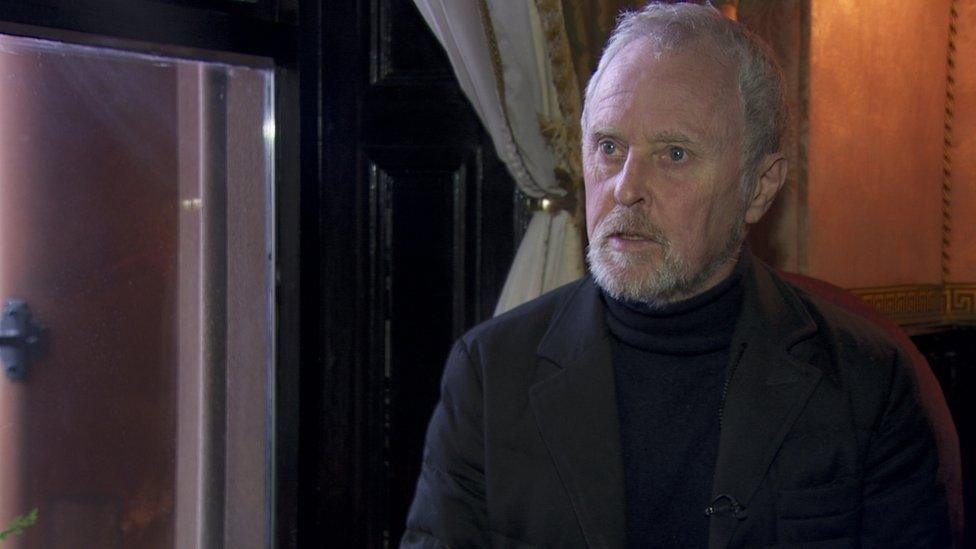
Bill Wolsey, from the Beannchor Group, said the furlough scheme costs him £30,000 a week
The longer restrictions are in place, employers struggle to cover the cost of pension and national insurance contributions with no money coming in.
In October 2020, one major employer, Bill Wolsey from the Beannchor Group, told BBC News NI the scheme costs him £30,000 a week.
The benefit to workers also varied depending on their salary - 80% of a well-paid job might be enough to live off for someone fortunate enough to have savings in the bank.
But many of those on furlough are in lower-paid sectors and have already been forced to find other work as they cannot afford to live on 80% of their wage, particularly younger workers in sectors like hospitality.
What will happen when furlough ends?
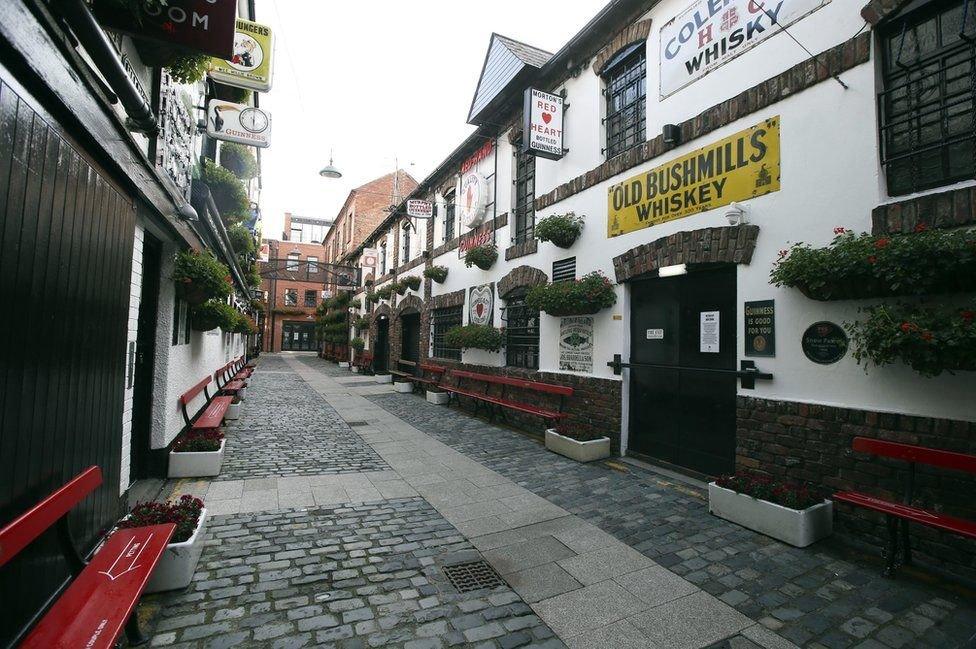
The furlough scheme is coming to an end in September
A less generous replacement, postponed when furlough was extended, called the Job Support Scheme was due to begin in November and had been widely criticised.
A bonus was also previously announced to act as an incentive for employers to keep on staff past the end of the Job Retention Scheme until January and they would receive £1,000 per worker - which for a big employer could be a substantial sum - that too was postponed indefinitely.
Furlough is due to come to an end in September, with the amount employers must contribute rising from July.
It is hoped that could mean large parts of the economy will be back open again by then.
But we still do not know what open will look like and what social distancing measures will remain in place.
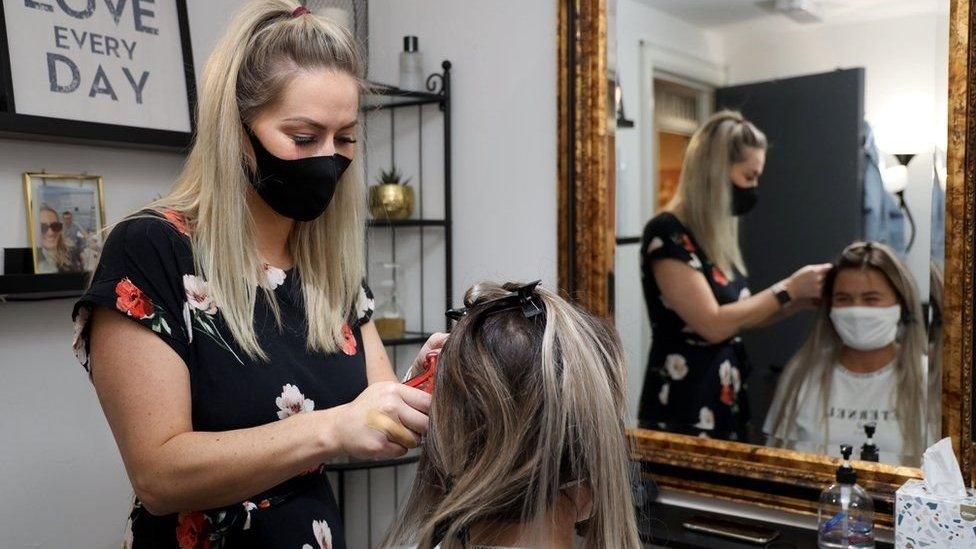
There are currently 100,000 people in Northern Ireland on the job retention scheme
For example, in hospitality employers have warned if they can only serve half the number of customers, they will only need half the workforce.
Some sectors will bounce back quickly, others will take much longer.
It is an uncertain time for about 100,000 people in Northern Ireland currently on the Job Retention Scheme as they do not have a date for when they can get back to work, but they do have a date for when their government support is coming to an end.
Economic recovery started last year and then stalled as we entered another lockdown, but furlough was still there propping up employers, acting as "training wheels" while they tried to get back on track.
It is hoped the roll out of a vaccination programme will build up enough consumer confidence to give economic recovery the momentum it needs to keep going when the stabilisers come off.
Related topics
- Published19 March 2021
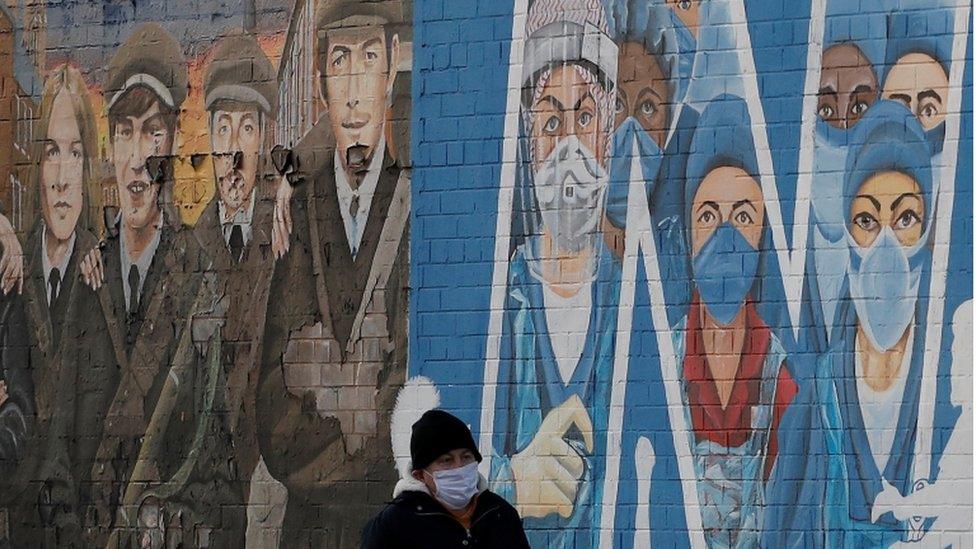
- Published25 February 2021
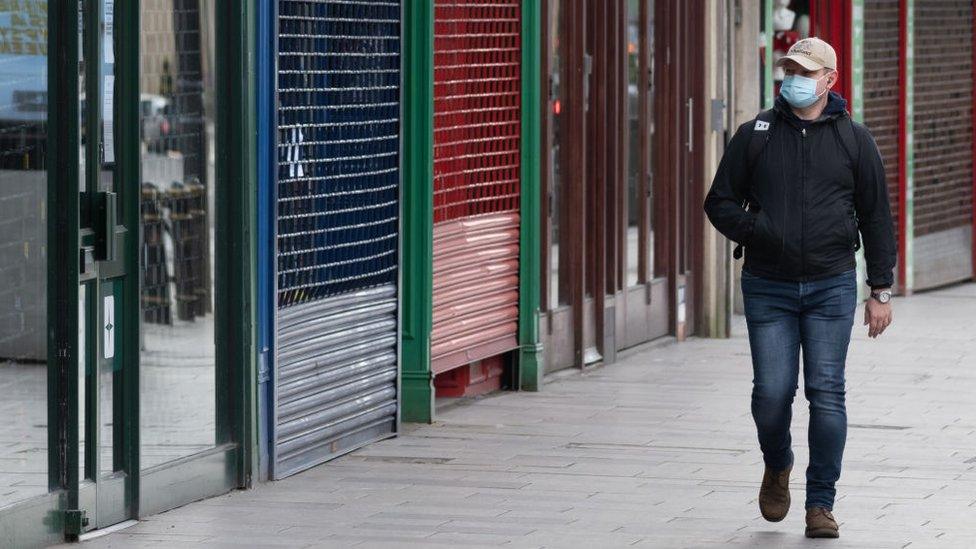
- Published29 July 2021
